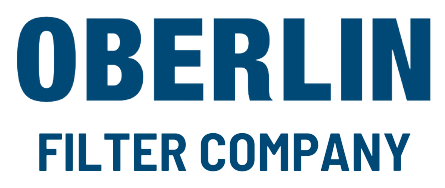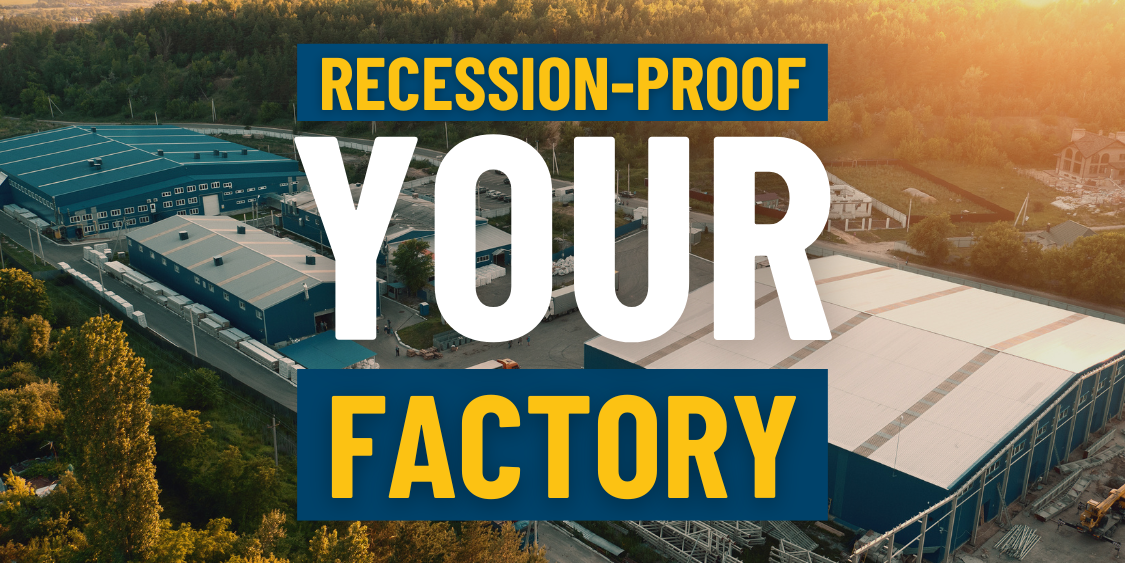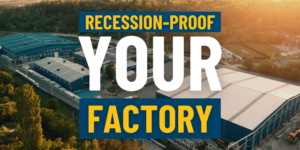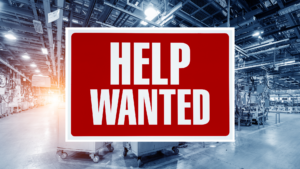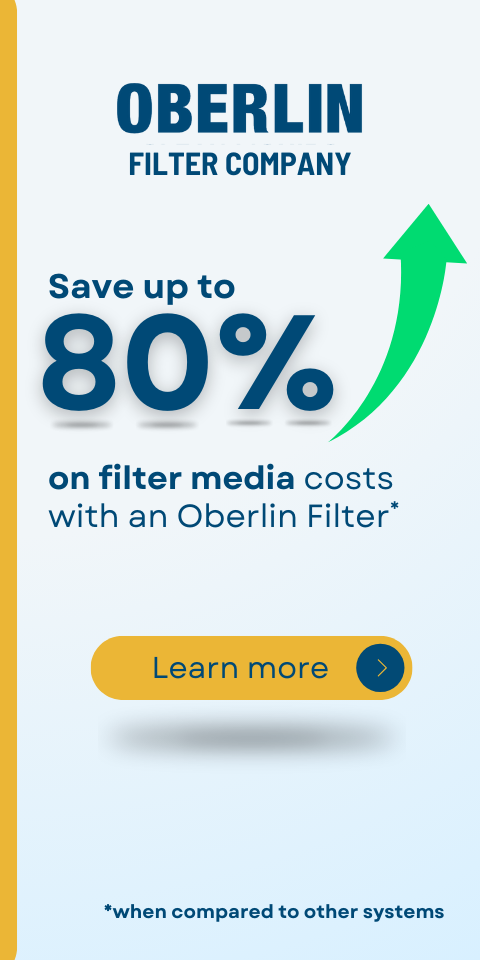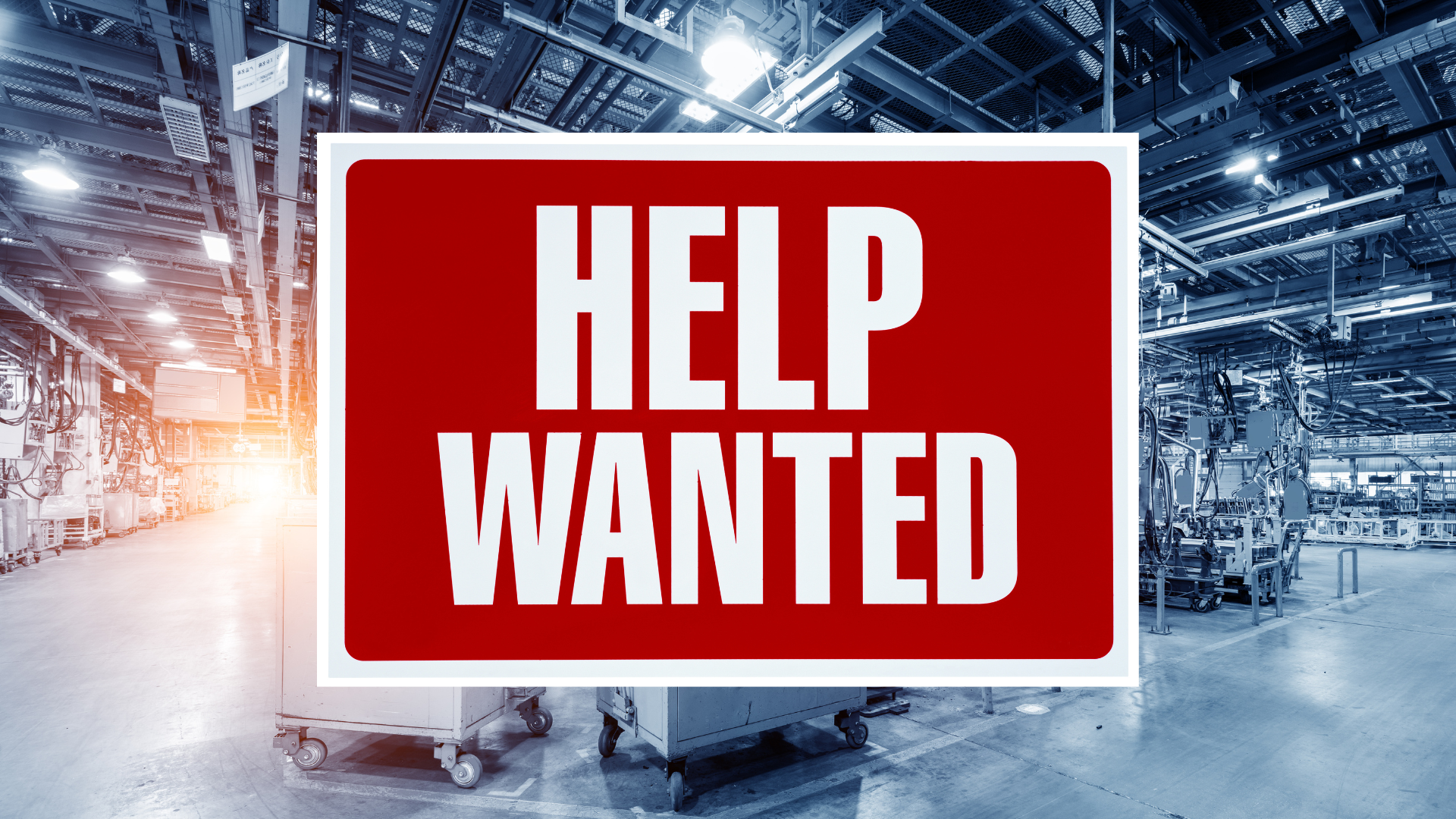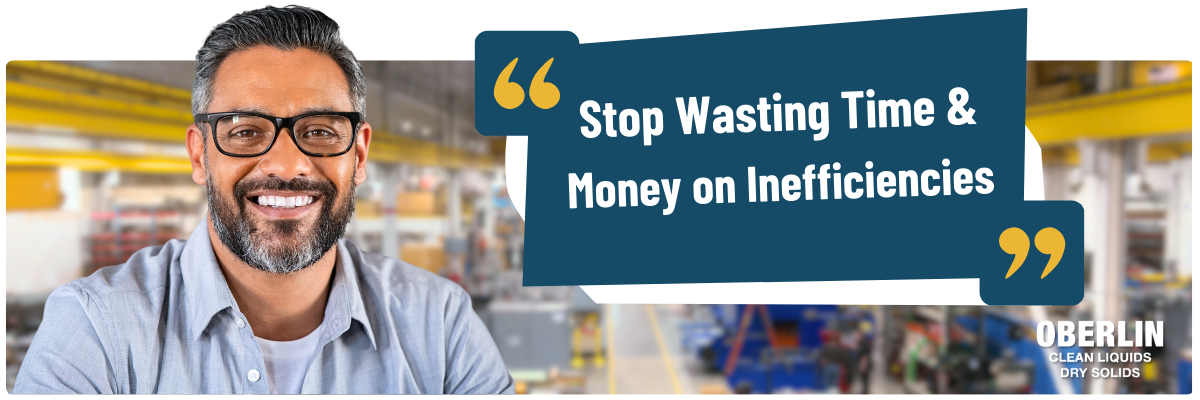Recession-Proof Your Factory: How Smart Filtration Investments Can Weather Economic Storms
The manufacturing sector often feels the first raindrops when economic storm clouds gather. History has shown that factories bear the brunt of financial downturns, and many face the challenge of navigating through rough waters to stay afloat.
Here’s a common concern among industries that work with commercial coolant systems: When the recession hits, product orders slow down, leading to decreased production.
As a result, there’s less need for coolant, yet the costs of maintaining this essential equipment remain the same. This can create a difficult situation for manufacturers struggling to stay profitable.
But when times are good, many companies don’t give much thought to the state of their filtration and coolant systems. They may assume that everything is fine as long as the machines are running smoothly.
However, when the tables are turned and production starts to slow down, companies quickly realize the importance of proper maintenance and upkeep. That’s when they start searching for ways to reduce costs and improve efficiency – but often, it’s too late.

Your Filtration Matters More Than You Think
Industrial filtration systems are the unsung heroes of manufacturing. They work tirelessly behind the scenes to keep operations running smoothly. These systems come in various forms, each tailored to address specific challenges in the production process – but the goal is the same: to remove impurities and maintain the quality and performance of machines.
If a factory is going to weather an unexpected economic downturn or meet an increased demand for its products, it needs reliable filtration systems. Without them, equipment breakdowns and production delays are inevitable.
Effective Filtration Equals Efficient Operations
As you can guess, when you have cleaner machines, you can expect better performance and longer lifespans. But the benefits of effective filtration go beyond just maintenance.
Clean coolants lead to better surface finishes and extended tool life, reducing the frequency of tool changes and improving product quality.
Properly filtered air prevents contamination in sensitive processes, reduces equipment wear, and creates a healthier work environment. Efficient wastewater treatment can dramatically reduce water consumption and associated costs.
Effective filtration systems also act as preventive maintenance tools, reducing wear and tear on expensive machinery. This translates to fewer breakdowns, less downtime, and lower maintenance costs. By extending the life of process fluids, reducing energy consumption, and minimizing waste, filtration systems contribute significantly to sustainability efforts.
When every dollar counts, reducing waste, extending the life of consumables, minimizing downtime, and improving product quality can make the difference between struggling and thriving.

The Best Recession-Proofing Strategy for Factories? Filtration.
When markets are down, every decision you make as a factory owner or manager can make or break your company. Surprisingly, some of the best decisions you can make start with the filtration systems you’ve invested in.
Reducing Operational Costs
One of the most immediate benefits of upgrading your filtration systems is reducing operational costs.
Modern filtration technologies can significantly extend the life of coolants and cutting fluids, reducing the frequency and cost of replacements. Additionally, by maintaining cleaner process fluids, you’ll see a decrease in wear and tear on machinery, leading to lower maintenance costs and fewer unexpected breakdowns.
Improving Product Quality
Maintaining product quality is crucial during a recession to retain customers and stay competitive. Advanced filtration systems help ensure consistent product quality by removing contaminants that could affect the final output. This is particularly important in industries with tight tolerances, where even minor impurities can lead to costly rejections or recalls.
Enhancing Equipment Longevity
Your machinery represents a significant capital investment. Effective filtration systems can substantially extend the life of your equipment by keeping process fluids clean and free from abrasive particles. You can delay costly equipment replacements, freeing up capital for other critical needs during economic downturns.
Minimizing Downtime
Every minute of production time is precious when finances are tight. Upgraded filtration systems can dramatically reduce unplanned downtime by preventing issues like clogged nozzles, contaminated coolant, or air quality problems. This increased uptime translates directly to improved productivity and profitability, even when orders might be scarce.

Oberlin Filter: A Leader in Smart Filtration Solutions
When implementing smart filtration solutions for recession-proofing your factory, Oberlin Filter stands out as an industry leader. Our innovative pressure filter technology offers several advantages that directly address many manufacturers’ challenges.
Operational Excellence – No Matter The Economic Situation
Oberlin Pressure Filters operate at up to 40 psi differential pressure, removing solids from liquids with remarkable efficiency. These filters can achieve filtrate quality down to 1 mg/L at 1 micron, ensuring ultra-clean fluid output. This level of filtration can significantly improve product quality and reduce waste, critical factors during economic downturns.
One of the strengths of Oberlin Filters is versatility. They can handle both high solids content (1% – 20% for many applications) and low solids polishing. This flexibility allows factories to adapt to changing production needs without investing in multiple filtration systems.
Oberlin Filter’s Cost-Effective Operation
Oberlin Filters are designed for cost-effective operation, a crucial consideration when recession-proofing your factory:
- Automated Process: The fully automatic operation reduces labor costs and improves safety, especially when dealing with hazardous materials.
- Efficient Media Usage: Oberlin Filters use up to 20 times less paper than vacuum or gravity filters, significantly reducing ongoing operational costs.
- Dry Solids Discharge: These filters can produce solids discharge up to 95% dry by weight, minimizing waste disposal costs and potential fluid loss.
You Can Trust Our Long-Term Reliability
Our commitment to quality and durability aligns well with a recession-proofing strategy. Their filters are built to last, reducing the need for frequent replacements and ensuring consistent performance over time.
By investing in Oberlin Filter technology, factories can achieve the efficiency gains and cost reductions necessary to weather economic uncertainties. Their solutions offer a practical way to implement the recession-proofing strategies we’ve discussed, helping to maintain product quality, reduce operational costs, and improve overall efficiency.

Are You Taking The Right Steps to Fortify Your Factory’s Future?
Smart filtration investments are more than operational upgrades—they’re a strategic move to recession-proof your factory. By focusing on efficiency, quality, and cost reduction, you can position your manufacturing operation to weather economic storms and emerge stronger on the other side.
Don’t wait for the next recession to catch you off guard. Take proactive steps today to strengthen your factory’s position:
- Assess your current filtration systems. Are they delivering the efficiency and quality you need to stay competitive?
- Explore the potential ROI of upgrading your filtration technology. Consider factors like reduced waste, improved product quality, and decreased downtime.
- Contact Oberlin Filter for a personalized consultation. Our expert team can evaluate your needs and recommend solutions that align with your recession-proofing goals.
Take the first step towards a more resilient operation. Reach out to Oberlin Filter today and discover how their advanced filtration technology can help recession-proof your factory. Your future self will thank you for the foresight and strategic thinking you demonstrate today.
JOIN OUR INDUSTRY NEWSLETTER
Your source for expert filtration knowledge, tips, and solutions to keep your operations running smoothly.
